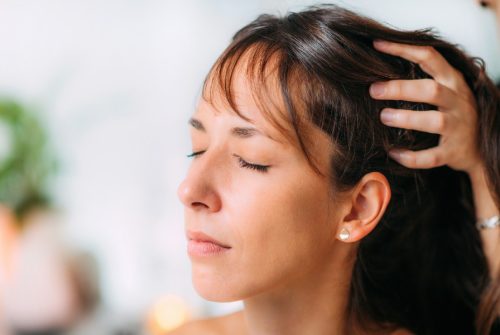
Menopause is the cessation of menstruation. It occurs as the ovaries stop producing estrogen, which causes the reproductive system to shut down gradually. Menopause mainly affects women over 45, but it can also occur in younger women if their ovaries are removed or damaged.
Around the time a woman reaches menopause, she may experience specific symptoms that indicate the end of her menstrual cycle. While every woman’s experience is different, some common signs can help you determine if you’re in menopause. We look at some of the signs that may prompt a visit to a specialist in treating the symptoms of menopause in Winter Park. Read on to learn more.
- Hot Flashes and Night Sweats
Hot flashes and night sweats are two of the most common early menopause symptoms. During a hot flash, a woman may feel an intense warmth over her entire body, which often comes with reddening the face and neck. In some cases, women also sweat during a hot flash. Night sweats are similar to hot flashes, but they occur during the night and interrupt your sleep.
- Vaginal Dryness
Another common symptom of menopause is vaginal dryness. This occurs when the vagina doesn’t produce enough lubrication, which can make intercourse painful and cause irritation and itching. If you have vaginal dryness, your doctor may prescribe a hormone cream or ointment to help alleviate the symptoms.
- Changes in Sexual Desire
Some women experience changes in their sexual desire as they go through menopause. There are often no signs of physical changes that lead to these problems. In most cases, this is due to low estrogen and testosterone levels, which you can correct with hormone replacement therapy.
- Low Energy and Mood Swings
Around the same time a woman starts to experience hot flashes and night sweats, she may experience fatigue that can last throughout the day. You may also feel low on energy or down in the dumps without any particular reason. In some cases, this lethargy prompts women to seek medical help for their menopause symptoms.
- Memory Loss and Confusion
Menopause can also lead to memory, and cognitive function changes for some women. You may find that you’re having more trouble remembering things or that you’re feeling a bit more confused than usual. If these symptoms are causing you difficulty in your day-to-day activities, your doctor may suggest hormone replacement therapy to help restore cognitive function.
- Urinary Tract Infections
Urinary tract infections (UTIs) are also common during menopause. The decline in estrogen can cause changes in the urinary tract that make you more susceptible to UTIs. If you’re experiencing UTIs more often than usual, be sure to talk to your doctor about it. You can identify a UTI through symptoms such as burning or pain when urinating, a frequent need to urinate, and cloudy urine.
In summary, menopause is a stage every woman has to go through, and it may come about due to age or other factors. When going through menopause, you will experience symptoms such as night sweats and hot flashes, vaginal dryness, changes in sexual drive, and low energy and mood swings. Some women also experience urinary tract infections, memory loss, and confusion.






